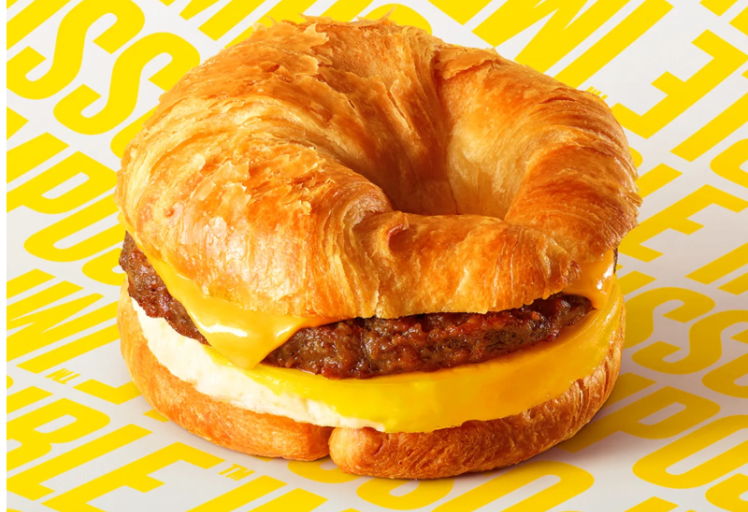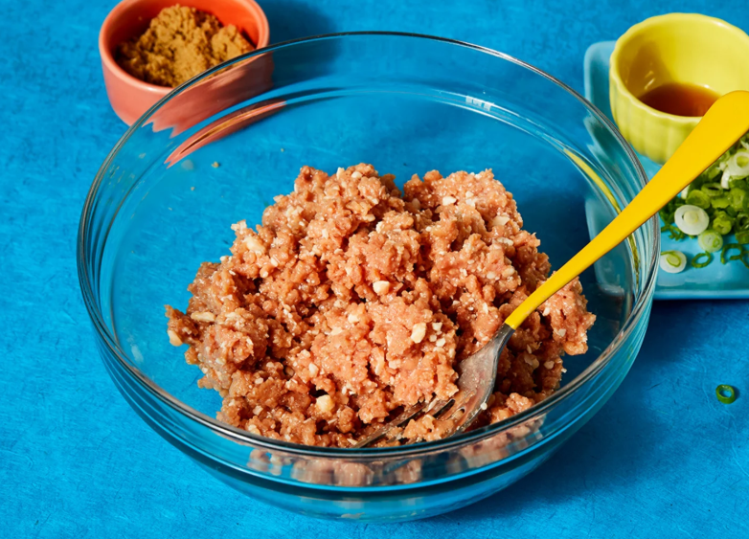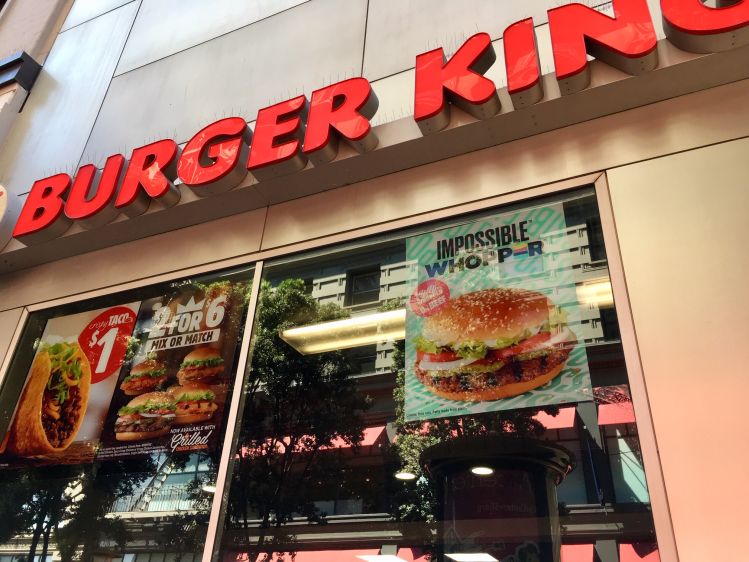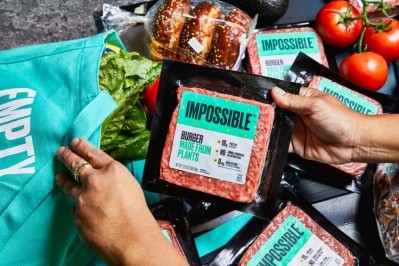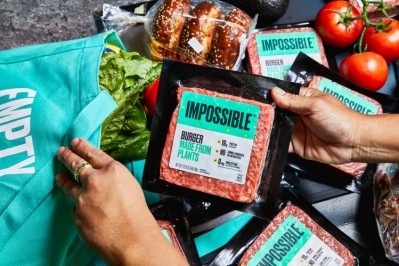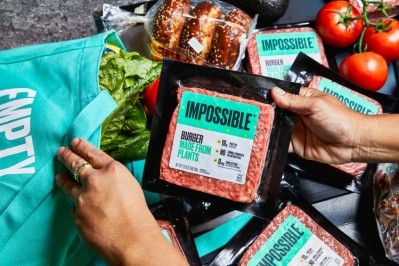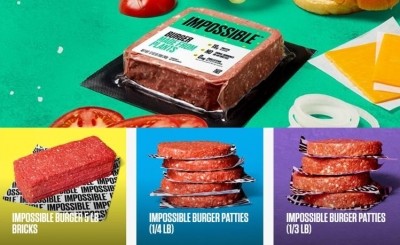Impossible Foods slashes prices: 'Our goal is to reach price parity and then undercut the price of conventional ground beef'
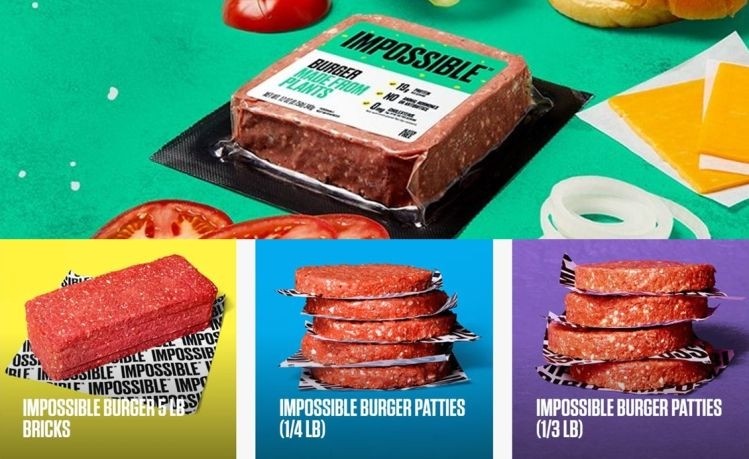
While firms don’t typically drop prices when demand is surging (Impossible Foods highlights “skyrocketing” demand and “hypergrowth” in its press release announcing the move), and conventional wisdom would caution against moves that might commoditise your product, the price cut reflects the company’s greater economies of scale and its mission to make plant-based meat a more accessible/affordable choice, as well as a more ethical/sustainable choice, chief communications officer Rachel Konrad told FoodNavigator-USA.
“It’s true that a conventional company would increase prices on a very hot commodity product, and we’re doing the opposite. But we’re not a conventional company. We want to make our product ubiquitous, super mainstream, super mass market. Our goal is to transition the global food chain away from animal-based agriculture, and to do that you have to compete on price.
“Our true competition is ground beef from cows [not plant-based rivals – which are currently piling into the category], we’re competing with products from JBS and Cargill that come from cows, not plants, and we’re competing on every metric: taste, nutrition, versatility and affordability."
She added: “On taste, we’re there. On nutrition, we’ve got no cholesterol, no hormones, no antibiotics, no fecal matter, no trans fats, lower calories and lower saturated fat. On versatility you can cook our product in exactly the same way you cook beef including in complex recipes such as lasagna, where other plant-based products can really disintegrate.”
We’re at about the same price as organic grass fed ground beef, per pound
On affordability, however, there’s still more work to be done, she said. “Right now, even with the price drop, we’re at about the same price as organic grass fed ground beef, per pound, but it’s important for us to get to the same price as 80:20 conventional beef and this is just the first price cut you’ll be seeing.”
Separately, Impossible Foods is also expanding its beef product lineup to foodservice customers to include quarter-pound patties (now at DOT Foods) and third-pound patties that will be available to order by restaurants nationwide.
It will continue to make its 5lb bulk package of Impossible Burger for hand-formed menu items such as meatballs, tacos, chili and bolognese.
“Our stated goal since the founding of the company has always been to drive down prices through economies of scale, reach price parity and then undercut the price of conventional ground beef from cows. Today’s price cut is just the latest step toward our goal of eliminating animals in the food system.”
Dr Pat Brown, CEO, Impossible Foods
‘Plant-based anxiety’
Asked about the competitive set in the plant-based meat segment - which is seeing major new entrants every month, from JBS, Cargill, Hormel and Nestlé to ramped up offerings from existing players such as Morningstar Farms, Lightlife, and Tofurky – Konrad said:
“We have a strong vested interest in other companies’ plant-based products being as delicious as possible as the #1 challenge we face is that about 67% of Americans have what we call ‘plant-based anxiety’ [they’ve tried first-generation or sub-par plant-based meat analogs in the past and resolved to steer clear of the category altogether].
“Most people still haven’t tried the Impossible Burger, and if they [competitors’ plant-based products] suck, people won’t always try another kind, so this is why we place so much emphasis on sampling.”
Impossible Foods will be rolling out nationwide in retail later this year
The price cut will be applied to all Impossible Foods’ products sold to US distributors but does not affect its retail product, which is now available at Gelson’s in Southern California, Wegmans on the Eastern seaboard, and Fairway Markets in greater New York City.
While Impossible Foods is currently in just 150 retail outlets vs 17,000 restaurants, it will be making some big announcements this year, said Konrad, who said retail partners had experimented with multiple merchandising options to date, with the product generally performing the best in the meat aisle.
“When we start rolling out nationwide in retail later this year, you’re going to see a lot of discussion about pricing.”
“We are asking our distributors to pass along the price cuts that average around 15% to restaurants, particularly to America’s hard-working restaurateurs.”
Dennis Woodside, president, Impossible Foods
Expanding the product line up
Impossible Foods – which has a stated goal to “produce a full range of meats and dairy products for every cultural region in the world” – recently launched the Impossible Sausage, but is also working on other products, said Konrad.
“I can’t give you a specific product roadmap, but we started with beef, because unquestionably beef is #1 from an environmental perspective, followed by pork, which is the most ubiquitous animal meat in the world. But Pat Brown is also really concerned about how we’re strip mining the oceans, which is utterly unsustainable, so we’ve done a lot of prototyping around fish.”
As for dairy, she said: “Our goal is to collapse the livestock industry and that means going after every piece of consumer value that comes out of a cow.”
She would not say whether Impossible Foods’ approach to the dairy category will be plant-based (eg. nut, seed, legume based) or whether it plans to produce dairy proteins via microbial fermentation (along the lines of what Perfect Day is doing) given its experience with yeast fermentation to produce the star ingredient in its burgers: heme.
Manufacturing capacity
Impossible Foods – which quadrupled production in 2019 (it has a plant in Oakland, CA but also works with multiple co-manufacturing partners) – said it would announce additional manufacturing capacity later this year.
